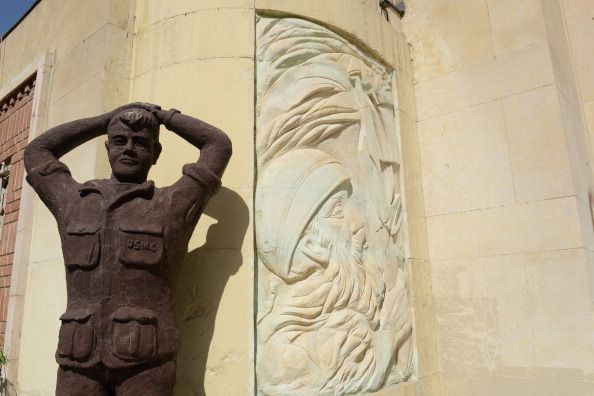US Iran Hostages Win Compensation 36 Years After Release By Tehran

More than 30 years after being released by the Iranian government, U.S. hostages who were held for 444 days are finally being compensated. Legislation inside the $1.8 trillion 2016 government-spending bill, which was passed Friday, entitles the 53 victims held in Tehran to as much as $4.4 million each. Other victims of state sponsored terrorism also will receive benefit from the bill.
“I had to pull over to the side of the road, and I basically cried,” Rodney V. Sickmann, who was a Marine sergeant working as a security guard at the U.S. Embassy in Tehran when he was seized on Nov. 4, 1979, told the New York Times Thursday. “It has been 36 years, one month, 14 days, obviously, until President Obama signed the actual bill, until Iran was held accountable.”
The money to pay for the compensation fund will come from a $9 billion fine imposed on French bank BNP Paribas, which broke U.S.-imposed sanctions against Iran, Cuba and Sudan. Approximately $1 billion will be set-aside for the 53 victims and others who are deemed to have suffered from terrorism.
Iran hostages 'win compensation' https://t.co/thPtktjgiM
— Business Books Store (@ebusiness_books) December 24, 2015The legislation accounts for payments of as much as $10,000 per day of captivity for each of the 53 hostages, 37 of whom are still alive today. Spouses and children are authorized to receive a lump payment of as much as $600,000, the New York Times reported.
The passing of the law brings an end to decades of debate and legal challenges to grant restitution to the former hostages, some of whom suffered physical and psychological torture during their ordeals. Legal claims were repeatedly blocked in court, including the Supreme Court, because the agreement that released the prisoners in 1981 also prevented any damages being paid out. However, the New York Times reported, anger over the Iran deal that was worked out by President Obama’s administration earlier this year motivated Congress to act.
Sickmann heard about the news from attorney V. Thomas Lankford, who made calls to the former hostages upon hearing about passage of the legislation Dec. 16.
“It became clear that we were sort of inextricably linked to the nuclear negotiations,” Lankford said. “Those negotiations resulted in an understanding that an inevitable next step in securing a relationship was to address the reason for the rupture, which was our kidnapping and torture.”
While the law has now been passed, it will be some time before the individuals receive the money because of outstanding court judgments, which could dilute the overall amount received by those held in Iran in 1979 and others who have been victims of state sponsored terrorism. As much as $20 million had been won by some victims.
© Copyright IBTimes 2025. All rights reserved.






















